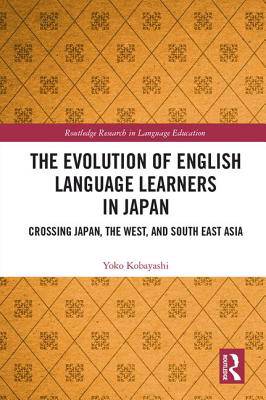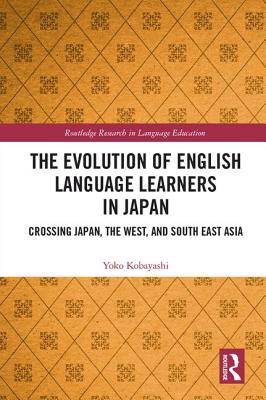
- Afhalen na 1 uur in een winkel met voorraad
- Gratis thuislevering in België vanaf € 30
- Ruim aanbod met 7 miljoen producten
- Afhalen na 1 uur in een winkel met voorraad
- Gratis thuislevering in België vanaf € 30
- Ruim aanbod met 7 miljoen producten
The Evolution of English Language Learners in Japan
Crossing Japan, the West, and South East Asia
Yoko KobayashiOmschrijving
This book seeks a better understanding of the sociocultural and ideological factors that influence English study in Japan and study-abroad contexts such as university-bound high schools, female-dominant English classes at college, ESL schools in Canada, and private or university-affiliated ESL programs in Singapore and Malaysia. The discussion is based not only on data garnered from Japanese EFL learners and Japanese/overseas educators but also on official English language policies and commercial magazine discourses about English study for Japanese people. The book addresses seemingly incompatible themes that are either entrenched in or beyond Japan's EFL context such as: Japan's decades-long poorly-performing English education vs. its equally long-lived status as an economic power; Japanese English learners' preference for native English speakers/norms in at-home Japanese EFL contexts vs. their friendship with other Asian students in western study-abroad contexts; Japanese female students' dream of using English to further their careers vs. Japanese working women's English study for self-enrichment; Japanese society's obsession with globalization through English study vs. the Japanese economy sustained by monolingual Japanese businessmen; Japanese business magazines' frequent cover issues on global business English study vs. Japanese working women's magazines' less frequent and markedly feminized discourses about English study.
Specificaties
Betrokkenen
- Auteur(s):
- Uitgeverij:
Inhoud
- Aantal bladzijden:
- 162
- Taal:
- Engels
- Reeks:
Eigenschappen
- Productcode (EAN):
- 9781138631618
- Verschijningsdatum:
- 29/01/2018
- Uitvoering:
- Hardcover
- Formaat:
- Genaaid
- Afmetingen:
- 156 mm x 233 mm
- Gewicht:
- 374 g

Alleen bij Standaard Boekhandel
Beoordelingen
We publiceren alleen reviews die voldoen aan de voorwaarden voor reviews. Bekijk onze voorwaarden voor reviews.











